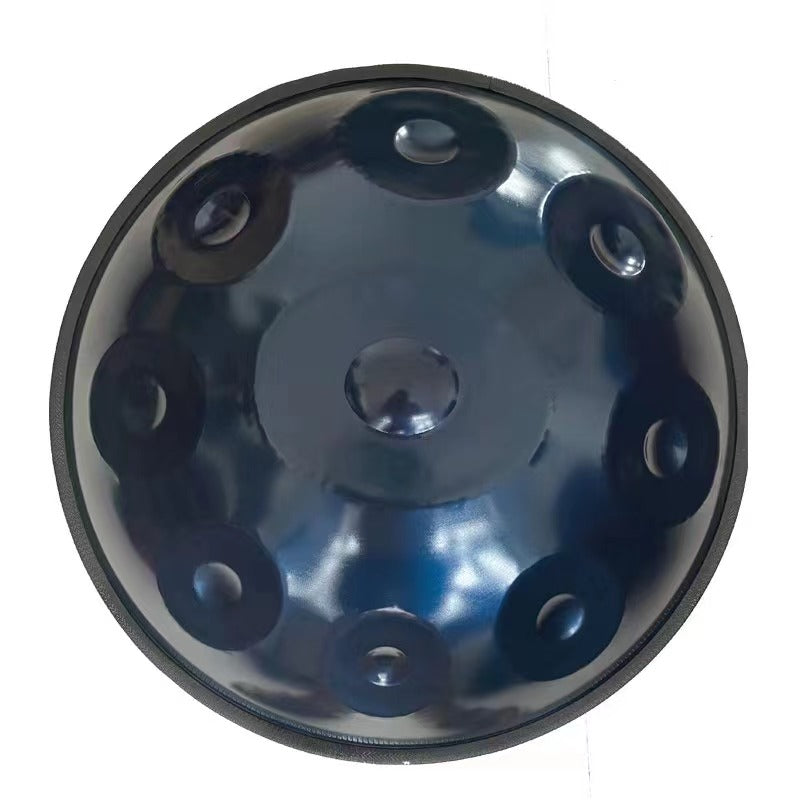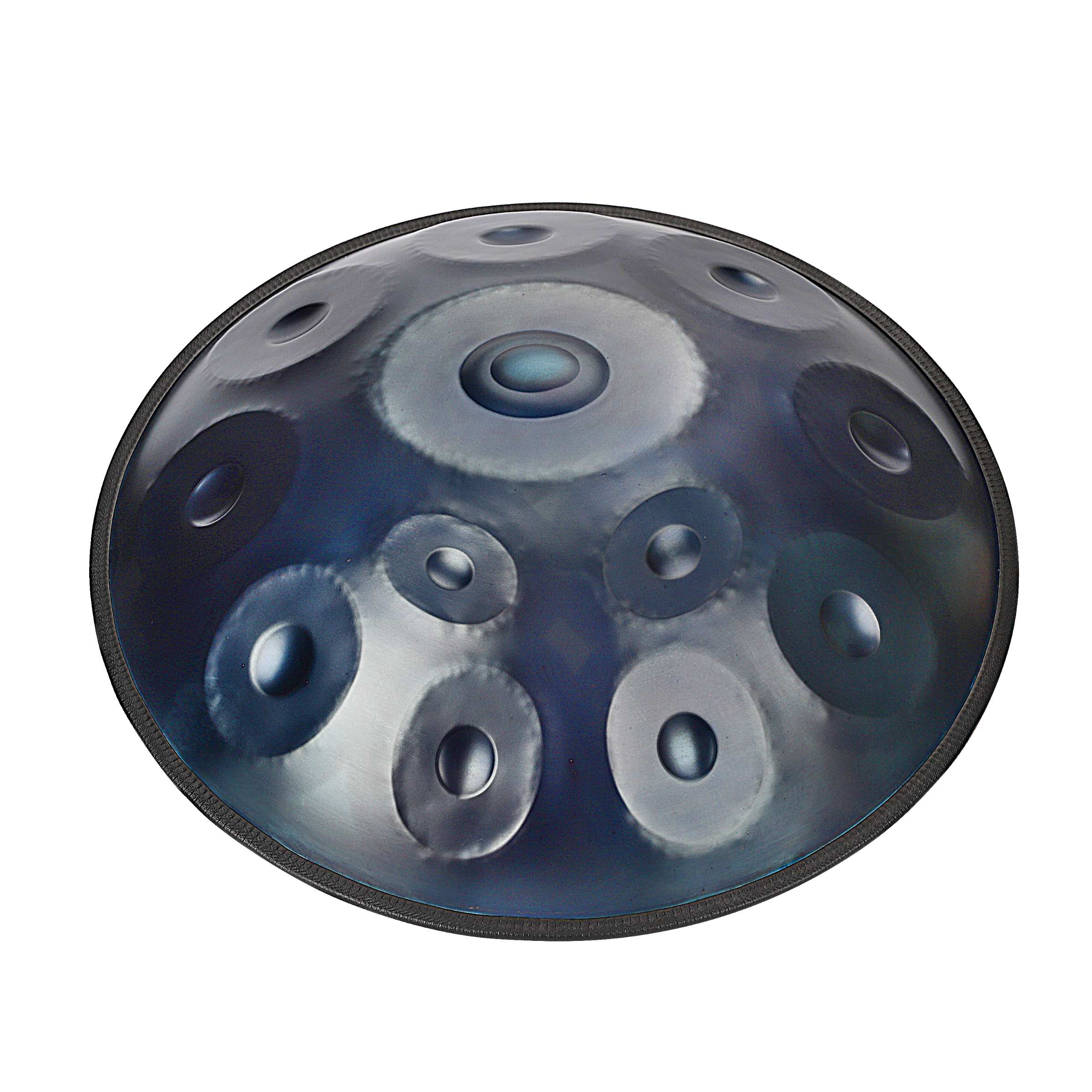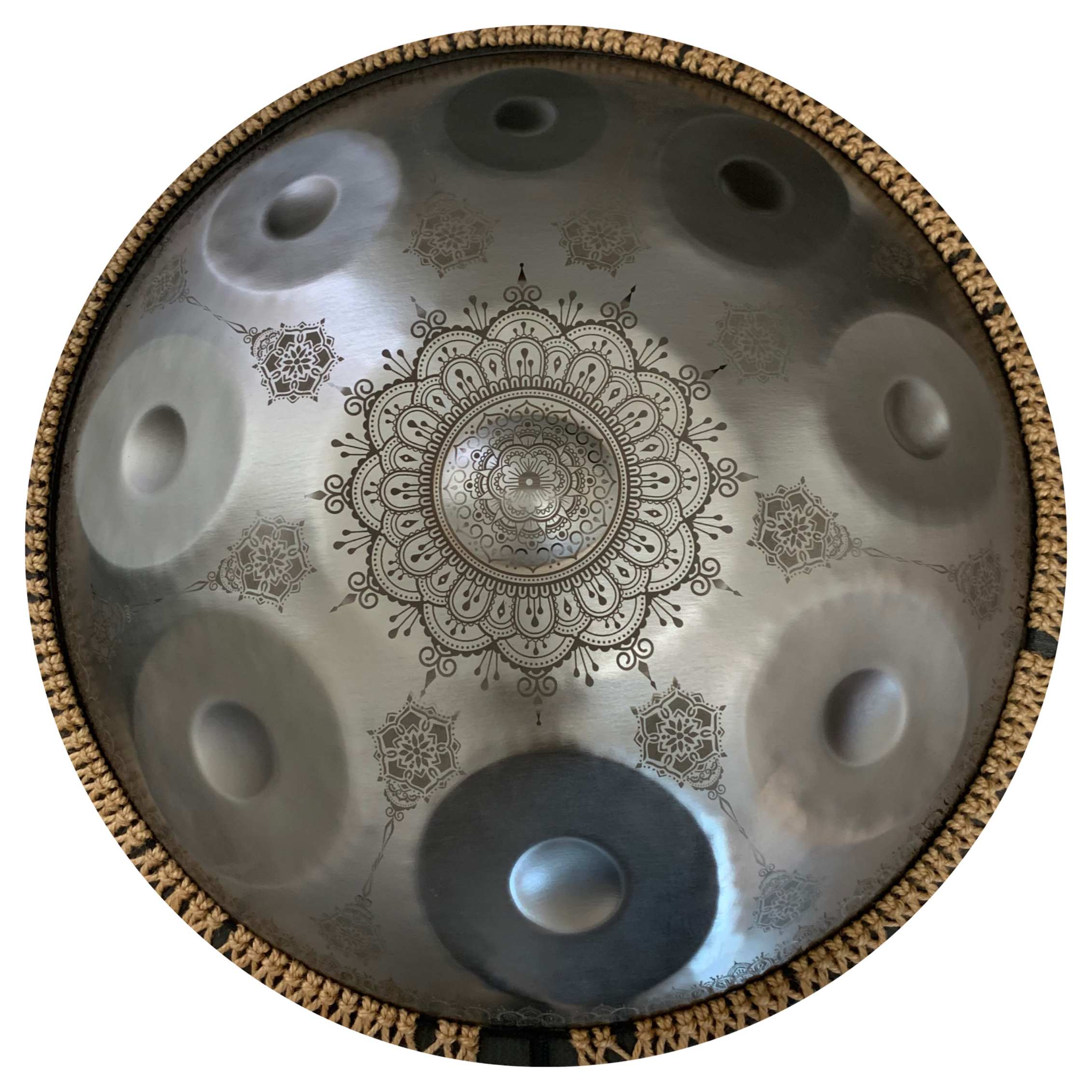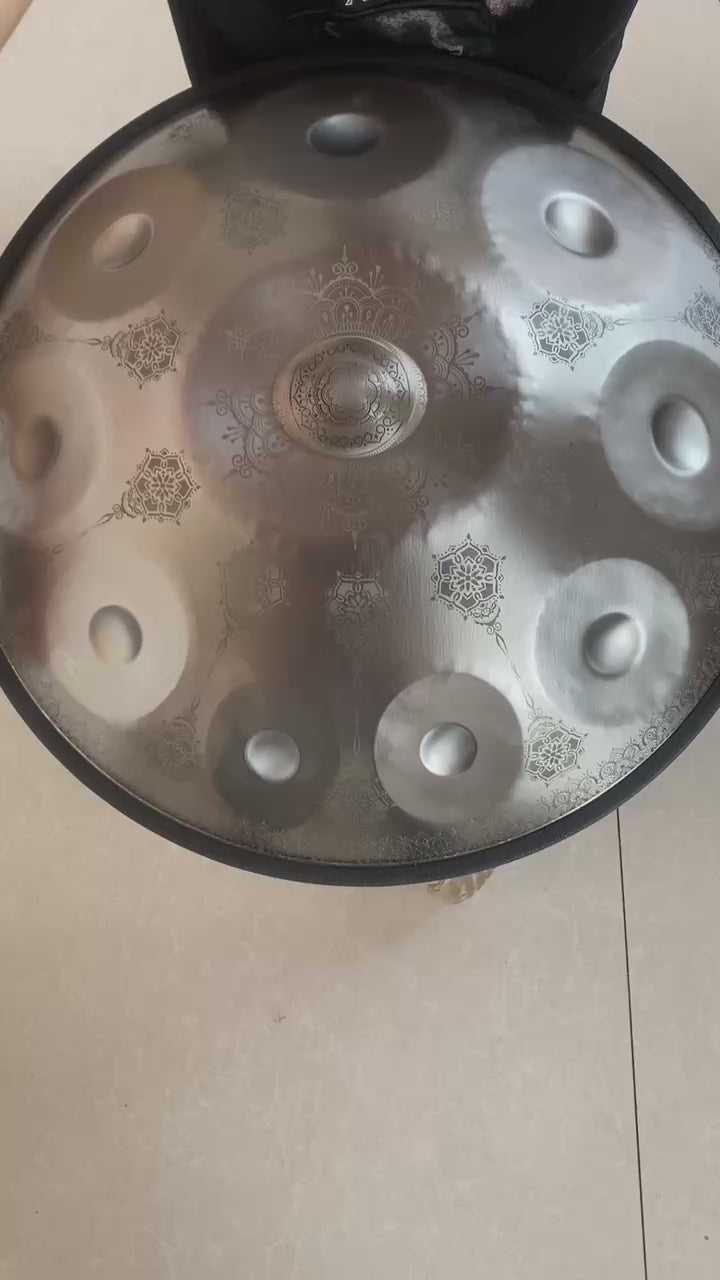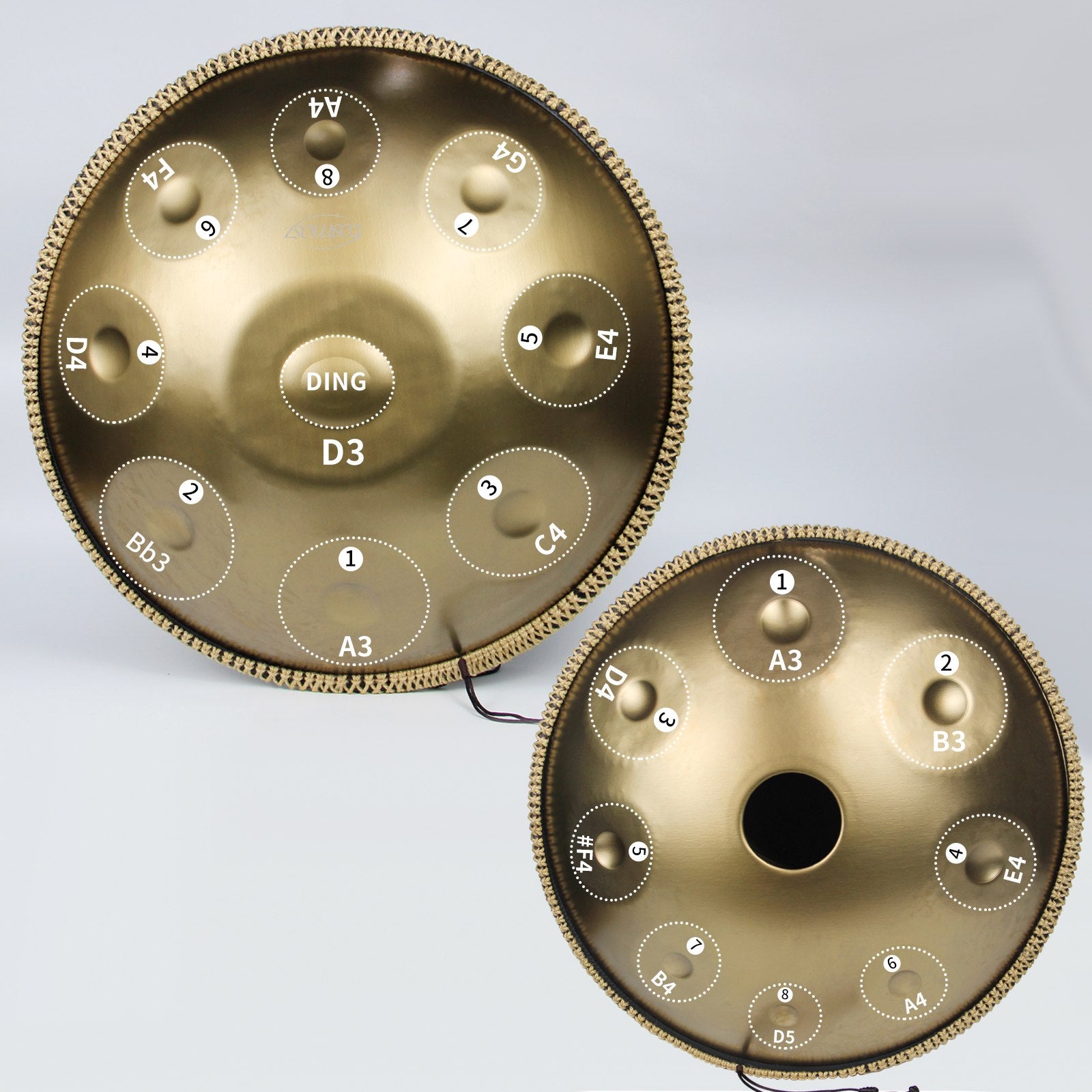Votre handpan est un chef-d'œuvre musical. Apprenez des conseils d'entretien essentiels pour préserver ses mélodies envoûtantes et le garder en parfait état pendant des années.
1. Gardez votre handpan propre
Nettoyer régulièrement votre handpan est la première étape de l'entretien. Utilisez un chiffon doux et sans peluches pour essuyer la surface après chaque session de jeu. Cela aide à éliminer les huiles, la sueur et l'humidité qui peuvent entraîner de la rouille ou de l'oxydation. Évitez d'utiliser des matériaux abrasifs ou des produits chimiques agressifs, car ils peuvent endommager la finition délicate.
2. Rangez correctement votre handpan
Lorsque vous ne jouez pas de votre handpan, rangez-le dans un environnement sec et frais. L'humidité peut être néfaste pour l'acier, donc évitez les zones humides. De nombreux joueurs de handpan utilisent des sacs rembourrés ou des étuis rigides pour protéger leurs instruments de la poussière et des dommages potentiels lors du stockage ou du transport.
3. Faites attention à vos mains
En jouant de votre handpan, soyez attentif à vos mains et à vos doigts. Essayez de jouer avec des mains propres et sèches pour éviter que les huiles et l'humidité ne se transfèrent à la surface en acier. Évitez également de porter des bagues ou des bracelets qui pourraient rayer la finition délicate du handpan.
4. Accordez régulièrement votre handpan
Les handpans nécessitent un accordage périodique pour maintenir leur son harmonieux et magnifique. Si vous remarquez que certaines notes sonnent faux ou inhabituelles, il est peut-être temps de les accorder. Consultez un accordeur ou un fabricant de handpan professionnel pour des services d'accordage, car ils ont l'expertise nécessaire pour ajuster votre instrument avec précision.
5. Protéger contre la rouille
L'acier est susceptible à la rouille, surtout dans des conditions humides. Pour prévenir la rouille, envisagez d'appliquer une fine couche de cire ou d'huile protectrice sur la surface de votre handpan. Cela crée une barrière contre l'humidité et l'oxydation. Assurez-vous d'utiliser des produits spécifiquement conçus pour les instruments de musique afin d'éviter d'endommager la finition.
6. Jouez avec prudence
Bien que les handpans soient des instruments robustes, ils ne sont pas à l'abri des dommages. Soyez doux lorsque vous jouez et évitez d'appliquer une force excessive en frappant les notes. Cela aidera à prévenir les bosses ou les éraflures sur la surface. Si vous n'êtes pas sûr de votre technique de jeu, envisagez de prendre des cours pour améliorer vos compétences et protéger votre instrument.
7. Établissez une relation avec votre handpan
Enfin, apprenez à connaître votre handpan. Passez du temps à jouer et à explorer ses tonalités et harmonies uniques. Plus vous vous connectez avec votre instrument, mieux vous comprendrez ses besoins et ses nuances. Cette connexion peut améliorer votre expérience de jeu et vous aider à remarquer tout changement qui pourrait nécessiter une attention.
Conclusion
Prendre soin de votre handpan est un travail d'amour qui garantit que votre instrument reste en parfait état. En suivant ces conseils d'entretien et en traitant votre handpan avec le respect qu'il mérite, vous profiterez de belles mélodies et harmonies pendant des années. N'oubliez pas que l'entretien professionnel et l'accord sont des aspects essentiels du soin du handpan, alors n'hésitez pas à demander de l'aide à des experts si nécessaire.
Avec des soins et une attention appropriés, votre handpan continuera d'être une source de joie musicale et d'inspiration dans votre vie.


